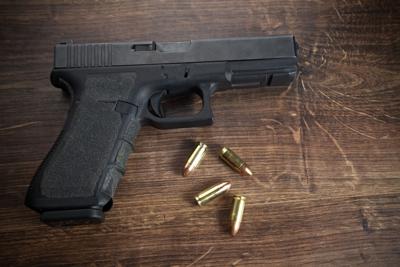Guns and gun control are hot topics. Gun control is one of the most divisive issues in American politics. Today’s blog is not meant to be an opinion piece on whether there should or should not be stricter gun control. This is a fact-based blog on safely storing guns and not a gun control debate.
The United States has 120.5 guns per 100 people, or about 393,347,000 guns, which is the highest total and per capita number in the world. 22% of Americans own one or more guns (35% of men and 12% of women). As of 2017, Gallup found that 42 percent of American households reported owning guns. With an estimated 118 million households in the United States, per the U.S. Census, that would mean that the country’s 393 million guns are distributed among 50 million households.
There are various gun laws both on the federal and state level. Please note that each state has different laws regarding firearms and firearm safety. We encourage you to research the laws where you live and/or plan to own a firearm. These laws address everything from who is legally allowed to own a gun to what kind of guns are allowed to be sold in a certain state. Many state’s gun control laws also address issues relating to gun storage. These laws encourage responsible practices for gun owners and are intended to promote safe storage for guns to prevent children or people prohibited from owning guns getting their hands on guns.
There are currently eleven states that have gun storage laws related to firearm locking devices. Massachusetts is the only state that has a general requirement to store all firearms with a lock in place. Massachusetts Gun Laws, per Chapter 131L, Section (a), make it unlawful for any person to store or keep any firearm, rifle or shotgun unless the weapon is stored in a locked container or equipped with a tamper-resistant mechanical lock or other safety device. Primitive firearms are exempt from this storage requirement. According to Mass.gov, “it is recommended that you store firearms unloaded, separately from ammunition, in locked compartments.”
In comparison, New York, California, and Connecticut have this requirement in certain circumstances. In these states, a firearm must be locked if the gun owner lives with an individual who is not allowed by law to possess a gun, such as a convicted felon.
Twenty-seven states also have gun storage laws that are designed to protect children from accessing guns. These types of laws depend on the state. For example, some states, including California, impose criminal liability if a minor is likely to gain access to a gun because it’s stored negligently. On the other hand, certain states, including Colorado and Nevada, only prohibit a person from recklessly, knowingly, or intentionally providing a gun to a minor.
As you can see, the laws vary. That said, most parents would agree that there is no such thing as being too careful with children and firearms. Learn how to protect your loved ones by keeping them out of harm’s way. From a legal standpoint, it is imperative that you are fully aware of local, state, and federal regulations pertaining to the safety and storage of defensive weapons in your household. Luckily, there are many effective options for keeping firearms out of children’s hands.
The US General Accountability Office (GAO) estimated that 100% of deaths per year in which a child under 6 years old shoots and kills him/herself or another child could be prevented by automatic child-proof safety locks.
General Firearms Storage Tips:
With safety in mind, especially with children in the home, here are a few tips for making sure your firearms are safely stored, according to USConcealedCarry.com:
- Store your firearms in places where they’re only accessible to you or to designated members of your family.
- Use a storage location that is out of reach of children and that can be secured with a lock. (Gun safes, cabinets, vaults, or other storage cases are all good options.)
- Keep guns unloaded when in storage.
- Store ammunition in a separate location that is locked and out of reach of children.
- Make sure keys or combinations are kept in a place where children can’t access them.
- Get into a set routine for securing your concealed carry
- Use a gun-locking device (like a cable lock) as an extra safety precaution when firearms are stored.
- When handling or cleaning a gun, never leave it unattended, not even for a moment.
- Teach safety and responsibility. By consistently explaining to your family members the dangers of gun use and teaching them about safe gun conduct, you can help demystify the issue.
Storage Methods
- Safes
According to MossyOak.com, gun safes are the most secure for storing your guns safely. Gun safes are the most durable and long-lasting protective places for all types of firearms, and they represent the most secure gun storage option available to the average gun owner. They can only open through the use of a combination, key, or digital locking mechanism or through the use of the drill. You can also bolt a gun safe to a concrete slab for extra protection.
Gun safes can be purchased in a variety of different sizes and configurations. This allows you to store different sizes of guns in the same safe in an organized manner. Gun safes are also good for keeping ammunition in a convenient place near their relevant weaponry.
Tip: Consider getting an affordable gun safe dehumidifier to prevent moisture from corroding and rusting your guns. This will help extend the life of your firearms, and it will also keep them in good shape while they are not being used.
- Gun Cabinets
Steel gun cabinets are another good option to safely store your guns. These aren’t quite as durable as proper gun safes, but they’re still hard to get into and require using a simple locking mechanism.
In addition, gun cabinets are sometimes cheaper than the more expensive gun safe models, so they can be a good option if you need to consider a budget. Gun cabinets are also light enough to allow for movement from room to room.
Gun cabinets are best for storing good rifles for other large gun accessories. Many of them have racks or shelves inside to facilitate organized storage. There’s also plenty of space for ammunition in most cases.
- Gun Cases
Gun cases are smaller than safe and cabinet storage methods. They can be found at most sporting goods stores and come in many different shapes and sizes, so you can choose the gun case that suits your firearm the best. Gun cases also come in several different materials that can affect their asking price and durability.
Gun cases are great for portable gun storage or for keeping ammunition alone. The main reason to use a gun case is to protect your firearms from physical damage. When inside the case, your firearms are not likely to be harmed from being dropped or from inclement weather. They are not intended to prevent your guns from being stolen by burglars, although they can still act as a significant deterrent with the right lock.
Gun cases are also affordable compared to the other two options. They can be good for purchasing some protection but do not offer the safety level as a safe or cabinet.
- Use Trigger Locks
Trigger locks are very simple and affordable. When attached to the trigger of a firearm, these trigger locks simply prevent the trigger from being manipulated and being fired. These are most effective for preventing children from accidentally using your firearms and injuring themselves or others.
In conclusion, the right method to protect your guns depends on your circumstances, budget and your legal responsibility depending on your state. Be sure to at least have some kind of protection in place no matter what and always do your research!
If you decide that keeping a gun at home is the right choice for you, you must ensure that it is properly and securely stored. This choice is a serious responsibility. Taking the necessary precautions is imperative, especially if you have children or adolescents at home.
If you have any questions or concerns regarding guns or firearm safety, contact Schulze Law today.
Check out this link for gun laws by state.
http://www.smallarmssurvey.org/
https://www.mass.gov/info-details/gun-ownership-in-massachusetts






